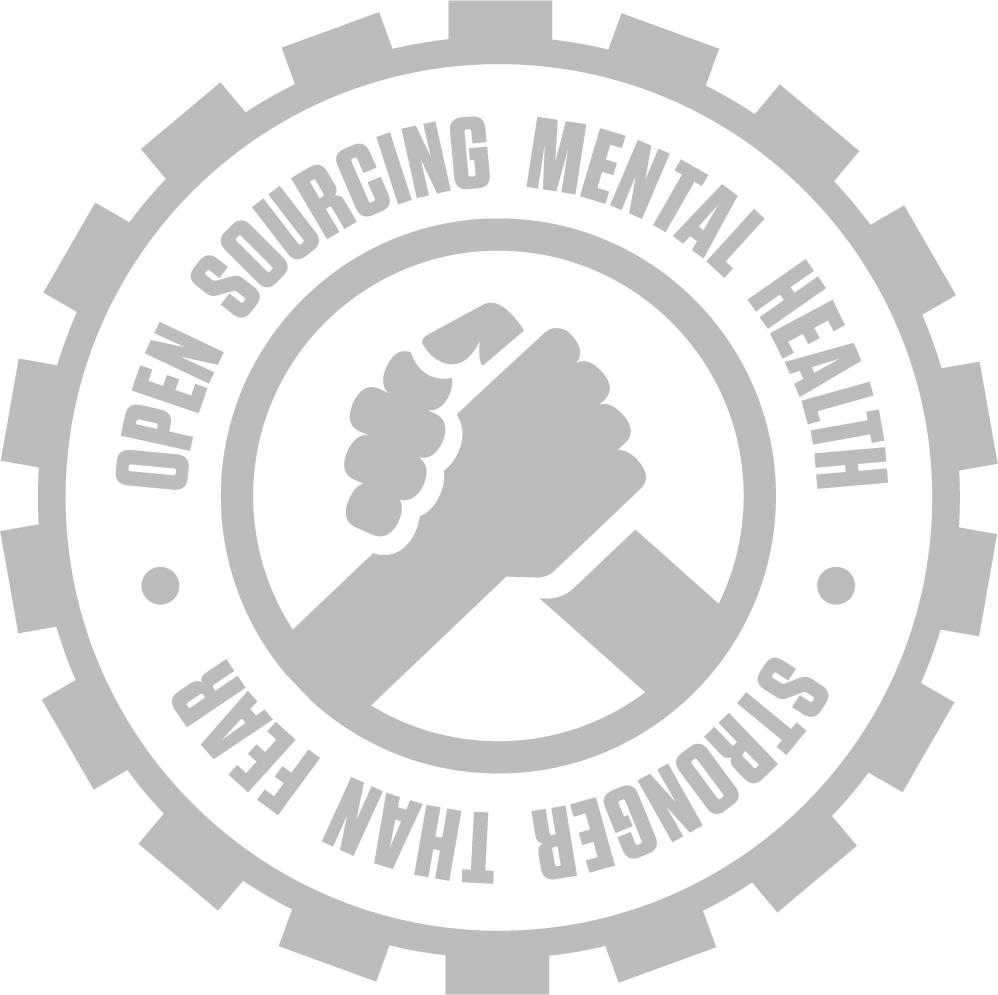We had a busy last day at #Heartifacts, a conference to facilitate conversations about mental health, communication techniques, and community involvement. We had six talks and a cognitive distortion workshop to fit into a 7-hour day. Let’s jump into it.
We said, “Good morning” to Olivia Liddell at the beginning of her talk, “Overcoming Your Fear of Failure”. Olivia’s message rings true for me, especially as I write this blog. What if this blog post is boring? Olivia, a former public school teacher, taught us how to recognize and overcome our fear of failure. What is a fear of failure?
- Feeling inadequate
- Imposter syndrome
- Procrastination
- Self-sabotage
- Reluctance to try new things
If someone is experiencing a combination of the above, the person may be experiencing a fear of failure. Another way to recognize a fear of failure is with the three P’s:
- Perfectionism
- Procrastination
- Paralysis
Fear of failure shouldn’t keep us from doing what we know we can do. Here’s Olivia’s list on how to overcome fear of failure:
- Identify your current strengths - and also begin to develop new ones.
- Build and rely on a support network.
- Redefine failure and learn from it.
Steve Jobs said, “Let’s go invent tomorrow, rather than worrying about what happened yesterday.” Don’t throw away your shot.
Our second talk of the day was about “Burnout and the Cult of Busy”. Our speaker was Caroline Moore. Self-care is essential for everything, and it’s non-negotiable if you’re managing a health problem. Unfortunately, we’re obsessed with being busy, and we live in a world that facilitates it. There used to be an easy physical barrier called an office, but now there’s Slack, SMS, etc. There’s no such thing as, “Oh, I missed your call.” Leisure is not seen as a necessity of humanity, but most achievements have come from downtime. Put your eyeballs on something else for five minutes and then come back to it. Working long hours and always being accessible aren’t necessary to succeed. Take care of yourself. Talk about your burnout, and tell people you have a problem. Set boundaries at work. Stop feeling guilty. When you state your needs, it encourages other people to do so too. Give yourself permission to be done with tasks, so you don’t feel guilty about clocking out.
Closing out the morning, Zachary Zlotnik spoke about “The Mental Impact of Tech Interviews”. Coding interviews are not accurate, objective, predictive, unbiased, or consistent. Many companies don’t have formal training requirements for employees to become interviewers, and technical ability takes precedence over everything else. Companies end up hiring and retaining “brilliant jerks”, but technical skills are often the most teachable. Coding interviews can lead to imposter syndrome in candidates or even burnout. Which is worse? Going through a toxic interview process or staying at a company? 70% of millennials have experienced imposter syndrome in one form or another. Coding interviews should do no harm. How do we fix things?
- Admit the system is broken.
- Emphasize unconscious bias awareness and empathy.
- Incentivize interviewing.
- Anonymously test new evaluation techniques on current employees.
- Take-home coding assessments should have sensible limits for scope, complexity, time, and deadlines. Don’t let the take-home test take more than two hours to complete.
- Ask your candidate to do a code review.
- No live coding from scratch. Give someone something to improve, perhaps the code in the code review.
- Interviews should be structured and graded with a rubric.
- Limit the number of interviews.
- Raise the soft skills bar.
- Communicate decisions promptly, diplomatically, and professionally.
- Be respectful.
- Ghosting is unacceptable with modern-day applicant tracking systems.
- Collect and monitor interview metrics and statistics.
Beginning the afternoon, Aly Fulton told us about “MomOps and Feelings”. Aly’s story was very personal, and she gave advice for each role in the workforce on how to help parents transition into and out of birthing children:
- Moms/birthing parents
- Secure childcare ASAP.
- Don’t be afraid to ask for help.
- Take care of both your mental and physical health.
- Partners
- Advocate for paid parental leave at your job and take it.
- Support your partner in any way.
- Know the signs of postpartum disorders.
- Employers
- Help make a supportive environment for new parents.
- Know that new parents aren’t cookie cutters and those needs will vary.
- Implement generous paid leave.
- Employers/managers
- Support lactation (“pumping”) needs.
- Minimize travel or add additional support for traveling parents.
- Utilize a re-onboarding process. The work environment will change while parents are on leave. Returning parents need to be reoriented.
- Employees/colleagues
- Offer support or just listen.
- Don’t push your parental advice on others.
- Advocate for parental leave.
- Conference organizers
- Select a talk on parenthood and tech from time-to-time.
- Provide lactation rooms.
- Offer quality childcare.
- Offer low-key events or a family track.
- And more! This list is not exhaustive.
Self-care is often the last thing on a birthing parent’s mind, but it’s important to pause and do something just for oneself. As we learn on airplanes, secure your oxygen mask before securing others’.
Next up was a cognitive distortions workshop. It started with a brief intro of the brain. We were reminded that our feelings are happening in our brains and that our brains convert that information into action. I chuckled at this software-hardware metaphor: The type of language, like English or Spanish, is akin to software, whereas the construct of language itself is akin to hardware. Brains are lazy since they just want to be fed, kept warm, and protected. Beliefs are lenses through which we see the world. At the end of the workshop, we went through two handouts: One lists all the cognitive distortions while the other is a Trial-Based Cognitive Therapy (TBCT) Intrapersonal Thought Record (IntraTR).
Aaron Aldrich’s talk was also very personal as he talked about “Continuous (Self) Improvement: Dealing with ADHD”. We learned that ADHD is often comorbid, usually with depression and anxiety. Getting diagnosed sometimes gives context on behavior. People may experience “Ah ha!” moments: “That behavior isn’t normal, but is characteristic of a disorder!” Aaron found having the diagnosis of ADHD helpful. He told us about “MVP: No-zero days”: days where one just gets out of bed, showers, and brushes teeth, and these days are 100% OK. Living with ADHD means continuous improvement, because this is not a journey with an end.
To end the conference, Tori Brenneison taught us about “Shine Theory 101: The Devastating Importance of Lifting Up Others to Lift Up Ourselves”. First, what is shine theory? It’s the radical notion that other people’s success does not mean your failure. This phrase was originally coined by Ann Friedman and Aminatou Sow of the podcast “Call Your Girlfriend”. We live in a culture of competition where everything has become a contest. Ann Friedman said, “Surrounding yourself with the best people doesn’t make you look worse by comparison. It makes you better.” We learned how to deal with resentment:
- Short-term
- When you’re feeling resentment, accept it in the moment.
- Calm down, and take a walk. Count ceiling tiles. Breathe slowly.
- Dwelling in a vortex of negativity is a terrible place, so avoid it.
- Practice compassion. (Tori’s least favorite tip because it’s the hardest.)
- Long-term
- Vent frustrations (carefully).
- Practice letting go.
- Own your resentment by setting aside a time to be alone and think about why you’re feeling resentful. Take responsibility for your actions.
We also learned how to make friends:
- Tap into existing social networks.
- Don’t (just) follow your passions. Branch out.
- People can tell when you’re not being authentic.
- Don’t use people. That’s terrible behavior.
- Don’t talk down about yourself to your new friends.
- “Fake it ‘til you make it” does not apply to new friends.
- Intentionality is key.
According to science, you should get in touch with your friends at least once every 15 days. Worry about what you’re doing instead of constantly comparing yourself to everyone else because opportunities only come to people who pursue them.
These talks comprised the last day of Heartifacts, and I’m sorrowful to leave Pittsburgh. Conferences like Heartifacts don’t happen often, and we should cherish these experiences when they do. I believe every talk discussed “feelings” in some way, and I am having some feels about this. In August 2019, Code and Supply will be putting on Abstractions, a technical conference that hopes to bring together everyone involved in the software development life cycle, from designers to developers to DevOps engineers to community leaders.

